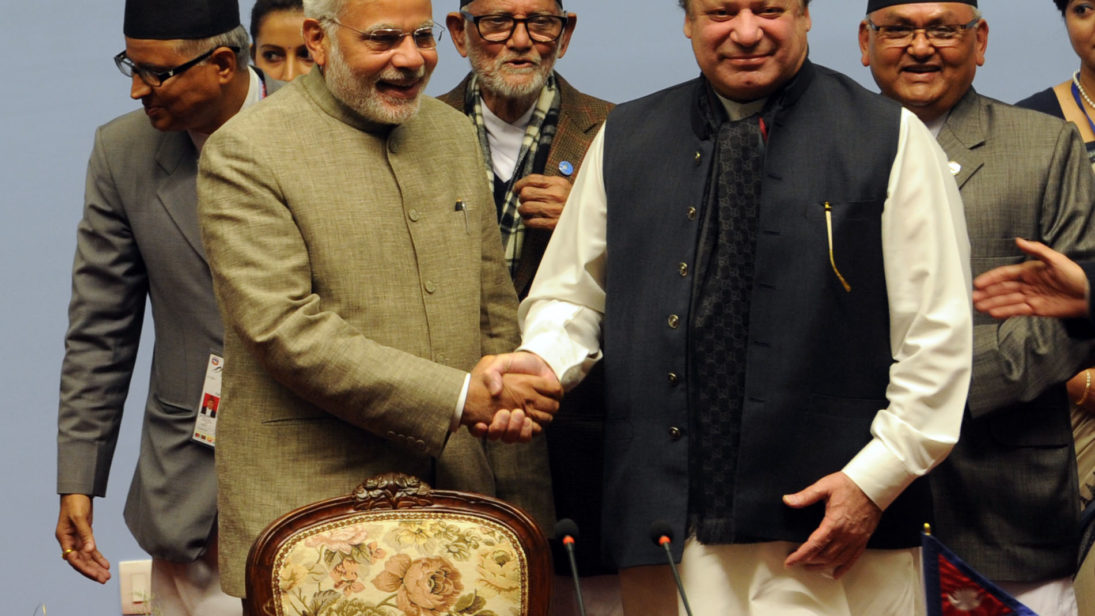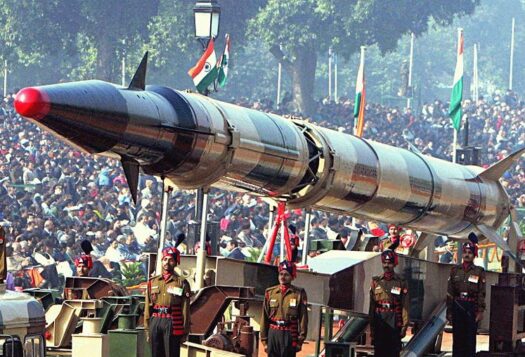
“We and you ought not pull on the ends of a rope which you have tied the knots of war. Because the more the two of us pull, the tighter the knot will be tied. And then it will be necessary to cut that knot, and what that would mean is not for me to explain to you.”
-Robert McNamara quoting Nikita Kruschev, Fog of War (2003)
It was Premier Modi’s phone call to his Pakistani counterpart, Mian Nawaz Sharif – and not rhetoric – that reduced the growing tension between India and Pakistan, thus dismissing the very notion that the threat of sub-conventional warfare is an effective deterrent. Narendra Modi’s controversial speech in Dhaka, Indian Defence Minister Manohar Parrikar’s and Indian Minister of State for Information and Broadcasting Rajyavardhan Rathore’s remarks in the aftermath of India’s ‘hot pursuit’ in Myanmar resulted in a war of words between Delhi and Islamabad. The Pakistani leadership was quick to remind India that Pakistan was not Myanmar as the Parliament passed resolutions condemning the Indian statements. The ensuing situation was precarious enough to prompt both the United States and the United Nations to urge the South Asian neighbors to show restraint and settle their differences amicably.
The India-Pakistan relationship is characterized by sub-conventional warfare, with both sides often blaming each other for creating tensions along the border or fomenting terrorism in each other’s territories. An example is Indian Defence Minister Manohar Parrikar’s recent statement about using terrorists to neutralize terrorists and taking “pro-active” steps to prevent a 26/11 type attacks originating from foreign soil. He said, “There are certain things that I obviously cannot discuss here. But if there is any country, why only Pakistan, planning something against my country, we will definitely take some pro-active steps.” Likewise, senior Pakistani officials including army chief General Raheel Sharif and Foreign Secretary Aizaz Chaudhry, accused India of supporting militancy in Pakistan. In such a charged environment there is a need to rethink the notion that the existence of nuclear weapons would act as a deterrent and prevent another conflict.
Notwithstanding the utility of nuclear deterrence, the ethics of fighting a war and threatening to do so (deterrence) are two sides of the same coin and cannot be separated from each other. If an indiscriminate attack is unacceptable, so too is threatening to carry out such an attack – even if the purpose of such a threat is to deter the enemy. South Asia analysts often liken the Cold War rivalry between the United States and Soviet Union to the contemporary India-Pakistan relationship. The two may indeed have several commonalities. However, there is a tendency to overlook the follies of the superpowers during the Cold War and the fact that they actually came close to nuclear war on several occasions. It was luck and not human rationality that averted war. While arguing the case for deterrence, South Asia also needs to be mindful of the fact that a cold war can change into a hot war at any time. The nature of war is such that even rational individuals falter – a danger that is more prevalent in contemporary South Asia than it ever was before.
Theoretically, the danger of a full blown nuclear war in South Asia remains unlikely, with both India and Pakistan practicing the “two steps short rule.” The 2001-2002 crisis remained below the threshold of full-scale conventional war. However, both India and Pakistan carried out large-scale mobilizations, almost crossing that threshold. Moreover, this conception of effectively being able to overcome a crisis remains problematic because it creates an illusion in the minds of both Indian and Pakistani leadership – exaggerating their belief in their ability to manage the conflict, thereby emboldening them to engage in a game of brinkmanship.
These recent events, mentioned above, showed Indian leadership threatening Pakistan in order to deter the latter from harming Indian interests. Resorting to the proverbial evil for an envisaged good outcome ended up creating more problems in the bilateral relationship between the two countries. Responding to the BJP government’s tirade against Pakistan, the leader of Pakistan’s Jamaat-e-Islami placed a bounty on PM Modi and declared that there could be no talk of friendship between India and Pakistan. He also blamed the Pakistani leadership for turning a blind eye to the cause of the Kashmiris. Not only do Indian provocations induce the Pakistani side to react, but they also stoke anti-India sentiment among the masses. The outcome of such needling is invariably what India seeks to avoid, i.e. greater support for radical elements within Pakistan.
Contrary to Indian Finance Minister Arun Jaitley’s recent statement about the onus being on Pakistan to normalize relations, the onus is on both India and Pakistan. The “loud and clear” message regarding India’s interest in normalizing bilateral relations was obviously lost amid the much louder threats being hurled against Pakistan. Borrowing from Robert McNamara’s lessons, it is time that South Asian leaders look beyond themselves, their petty politics, and point scoring, and work for the greater good of their people. Normal ties between India and Pakistan are a necessary ingredient for security and development in South Asia.
***
Image: Indian Ministry of External Affairs, Flickr


